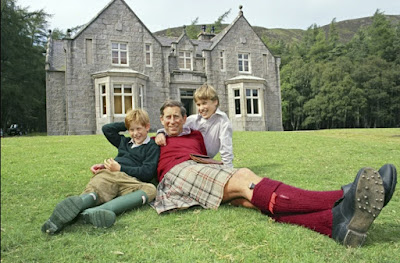New month old post. First posted 14th November 2014
There was once a time when things at school looked promising. I was doing well in most subjects, especially science. My diary remembers I was top in biology, had got 20/20 in a chemistry test, and had enjoyed a ‘fab’ physics experiment: the water equivalent of a copper calorimeter. Yet I only scraped through ‘O’ levels and messed up ‘A’ levels completely. What went wrong?
I was spellbound by the science labs the moment I went to grammar school. They had a permanent smell of pungent chemicals, coal gas, rubber tubing and wood polish that hinted at mysterious secret knowledge. What went on at those dark ancient benches with sinks, gas taps and glass-stoppered bottles etched with intriguing names: tincture of iodine, nitric acid, sodium hydroxide, lime water? Could they make explosives and powerful poisons? Could they turn base metals into gold? Did they have the philosopher’s stone with the secret of eternal life? Perhaps if you paid attention, you might have these things too.
In a room tiered like the Royal Institution, you looked down from beautiful oak benches upon Dr. Page as he heated potassium chlorate and manganese dioxide to make oxygen. It bubbled up through water into an upturned jar. He became a wizard, an alchemist, showing how it reacts with other substances. “Magnesium burns with a bright white light” he said, conjuring a dazzling ball of light too bright and too white to look at.
In biology, my dysfunctional memory absorbed the names of anatomical structures and physiological processes: xylem, islets of Langerhans, osmosis, mitochondria, mitosis. In physics, I was captivated by the sheer ingenuity of the procedures. In mathematics, the interactions of shapes and numbers seemed as exquisite as any art form.
And what a cheat! We listened to a weekly series of science programmes on the wireless. I might have been the only person in the class with a tape recorder. I showed my mother how to record the programmes at home and, after listening a second time, handed in outstanding essays.
But things began to go downhill. I have excuses, such as forgetting to revise for the summer science exam. “Position in class 2nd, position in exam 25th, a disappointing exam result” said my report. It put me in the second stream for science, where people messed about and I made the mistake of wanting to be liked. Things got harder too. Chemistry progressed from observation to experiments, quantitative measurement and atomic models. And we moved to new labs with benches in rows rather than islands, where teachers couldn’t see what was going on at the back.
The once admired Dr. Page, little and thin with an odd toothy mouth, small bony face and permanent worried frown, was not well equipped to deal with continuous low level disruption. An orchestra of clicks and pings from cupboard door catches and drawer label holders would start up every time he turned to write on the blackboard, only to be met by silent, innocent faces when he angrily spun back.
Occasionally he would catch someone still smirking, attributing blame by shouting their name: “Bullard!”, “Gelder!”, “Dunham!”. Geoffrey Bullard perfected the ability to click a cupboard door with his foot while the rest of him remained motionless, his face expressionless. He could continue this covert clicking after Dr. Page had spun, causing someone else to laugh and get the blame.
Harvey Gelder started a league table of called out names. Geoffrey Bullard went straight to the top when he caused uproar by catching a wasp and dropping it into a bottle of sodium hydroxide. It didn’t half fly around fast inside the bottle.
It wasn’t long before everyone at the back had points except for Maurice Jupp. He remained bottom of the league until almost the end of term. The day arrived when, under conditions of intolerable harassment, Jupp was spotted not sitting quietly and had his name called out. We all stood up cheering and applauding. We had to stay late that day.
Jupp’s downfall was brought about by water. The bench water taps could not have been better designed for mischief. They were of the typical laboratory downspout design, and could be turned on just enough to drip so that a well-timed finger could flick drops of water at the head of the person sitting in front. Or, the top of a fountain pen, the kind with a small hole in the side for equalising air pressure, could be pushed on to a tap to squirt a powerful jet of water at someone sitting yards away. The rubber teat from a teat-pipette could do the same job if you made a tiny hole in it, except the spray was so fine that the recipient might not notice until the back of his jacket was soaked through. And a teat without a pin hole pushed on to a dripping tap would slowly expand like a balloon until it became a water bomb primed to explode. There was not a lot you could do about it. Pulling off the teat was suicidal. The best thing was simply to turn off the tap, hoping you had correctly remembered which way was off, and trust that the thing remained stable.
Hardly anyone from the back of that class passed their ‘O’ level chemistry.




